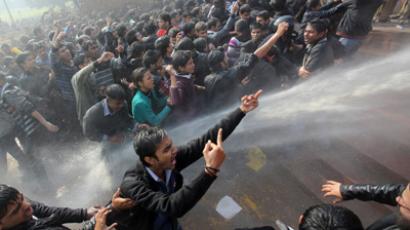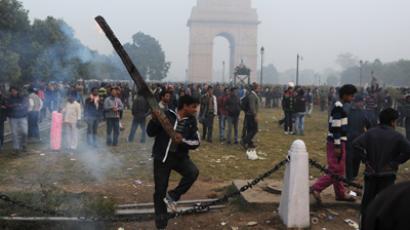Delhi night bus assault: Indian teen sentenced to 3 years in gang rape trial
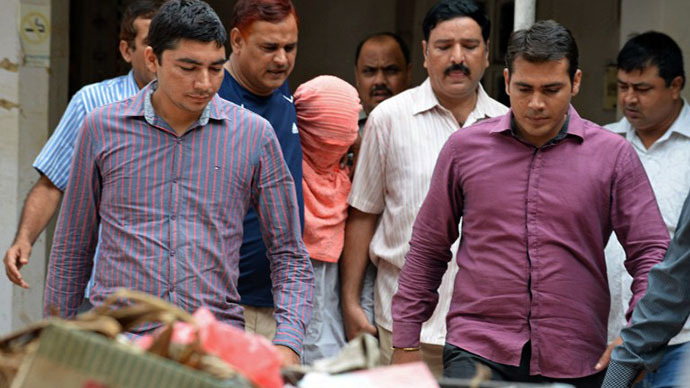
An Indian teenager, one of the main suspects in a gang rape case in New Delhi together with five other men, was sentenced on Saturday. This is the first sentence served in the deadly case which sparked protests across India in the winter.
“The juvenile has been found guilty under rape and murder
charges, and accordingly sentenced to three years of jail,”
Rajesh Tiwari, a lawyer for the juvenile, told reporters.
The ruling has sparked debate over whether the country is too
lenient with young offenders, especially in a country where a
rape is reported every 20 minutes. The verdict was the first in
the trial.
On December 16 last year the trainee physiotherapist boarded a
charted bus with her male friend which had been commandeered by
joyriders. Suspicions were aroused when the vehicle departed from
its usual route. She was dragged to the back of the bus, while
her friend was beaten with a metal bar and left unconscious.
Medical reports indicated that she suffered severe injuries to
her abdomen, intestines and genitals on account of the attack.
According to a police spokesperson, the teenager was the most
violent, and apparently “sexually abused his victim twice and
ripped out her intestines with his bare hands.”
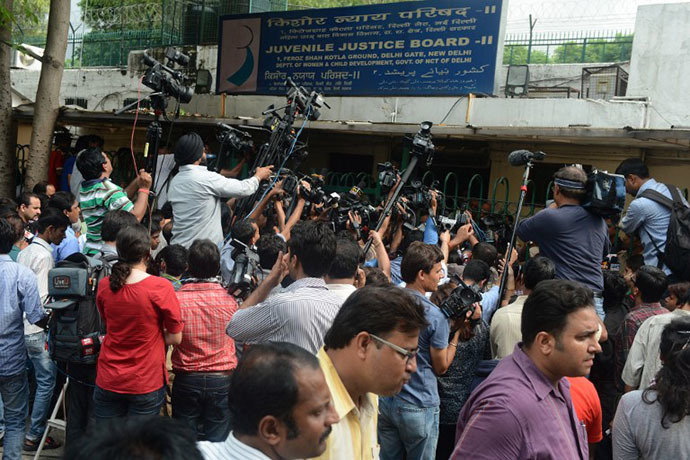
Both victims were dumped on the road after the attack, and two
weeks later, the girl died in a Singapore hospital. She was
admitted with only five percent of her intestine left in her
body, according to then-reports from the Hindustan Times. The
victim’s father said the juvenile tortured her the most
mercilessly.
A group of protesters were present outside the courtroom wearing
black bandanas marked with “16 December Revolution,”
demanding that the teenage perpetrator be hanged.
While the 18-year old will serve out his term in a reform home,
verdicts for four other adults involved are expected within the
next fortnight. One accused, who was allegedly the ringleader,
committed suicide in his prison cell in March.
In January, Indian authorities confirmed that the accused had
been 17 at the time of the assault, using school records as
evidence for the ruling. The victim’s family, alongside many
others, were clamoring for him to receive the death penalty.
However the maximum that could be imposed by the Juvenile Justice
Board was three years.
“You may as well set the juvenile free, if the sentence is
only three years for heinous offenses like rape and murder,”
said the mother of the victim, crying heavily after the verdict
was read out. She announced that she would appeal the decision.
The victim’s brother told Reuters that the teenager deserved
“life” behind bars.
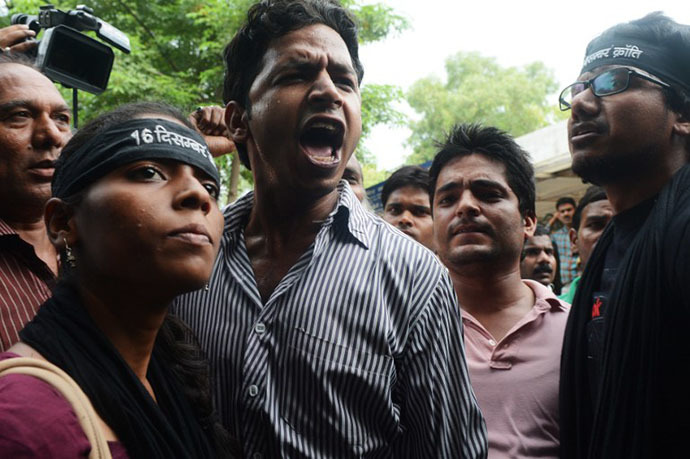
Since the public outrage over the rape, the government has
fast-tracked harsher laws against sex-crimes. However, the
juvenile ‘age’ has remained at 18.
An opposition politician Subramanian Swamy has filed a petition
to use “emotional, intellectual and mental maturity” when
trying to discern the ‘age’ of a potential juvenile, rather than
years alone.
“I felt that, with the kind of rape that took place, if (the
juvenile suspect) got off lightly it would send a bad signal to
society,” Swamy told Reuters.
The teenager pled not guilty to 13 charges including rape, murder
and robbery during the closed-door trial.
A police report notes that he left home at 11, with his mother
believing him to have been dead until his arrest.
While last year, some 24,923 cases of rape were reported in in
India, according to official government statistics, this does not
allow for the suspected mass of unreported rapes to be included
in the figure. However the comparatively low numbers (in the US
for comparison over 80,000 cases were filed for the same period),
can be explained by the fact that rape victims who come forward
are frequently considered ‘dishonored’ and are subsequently
ostracized from society.













